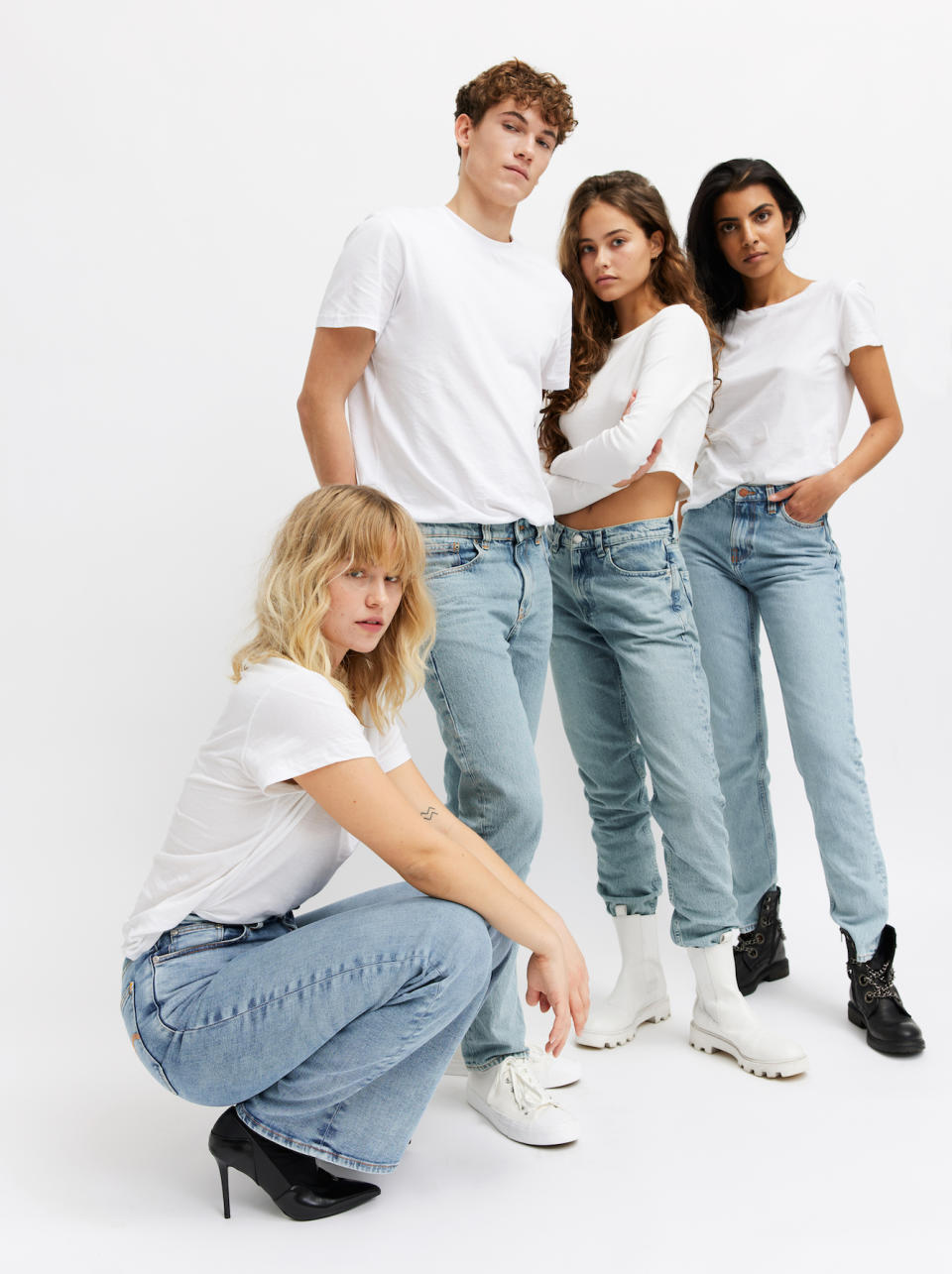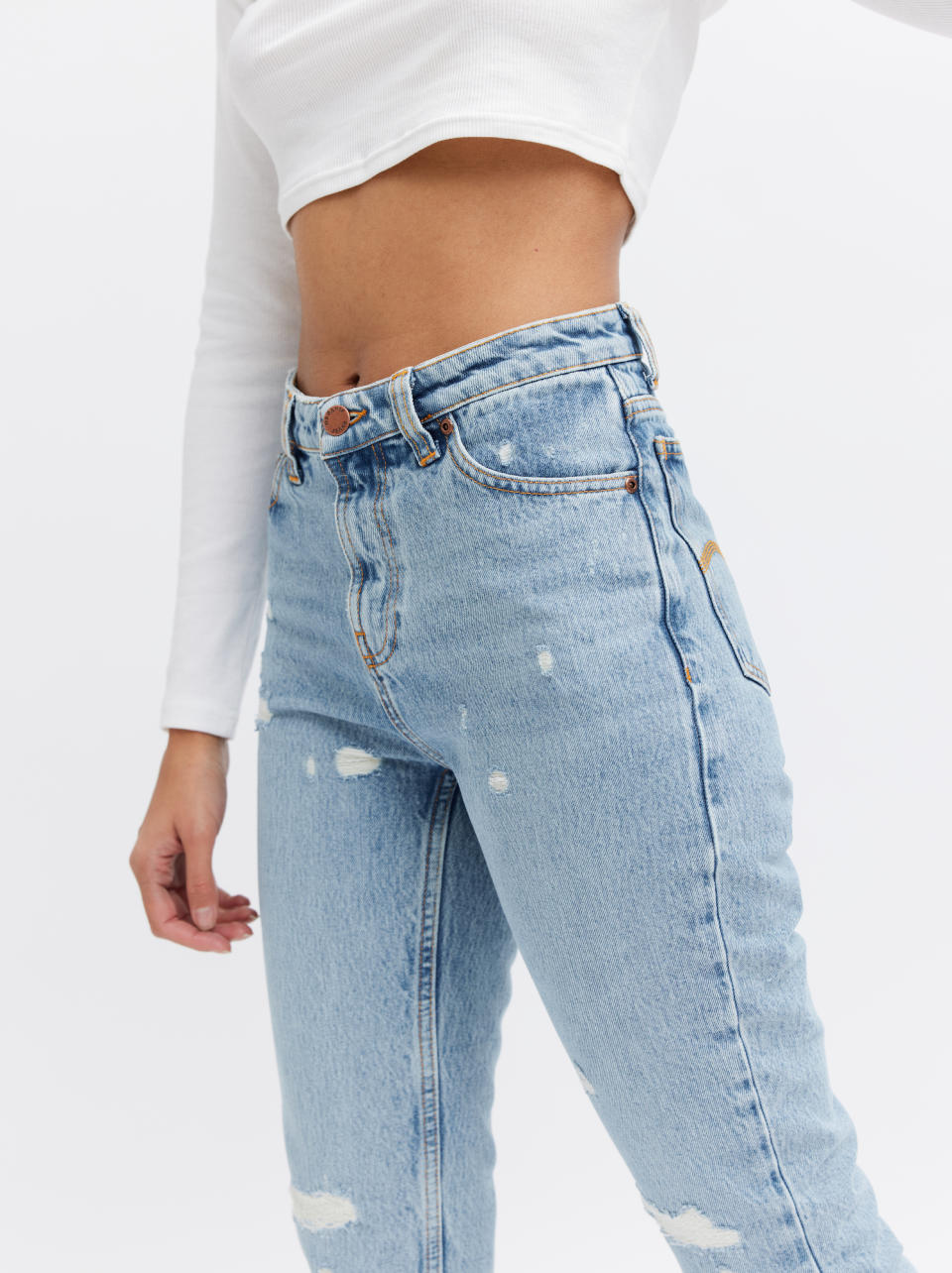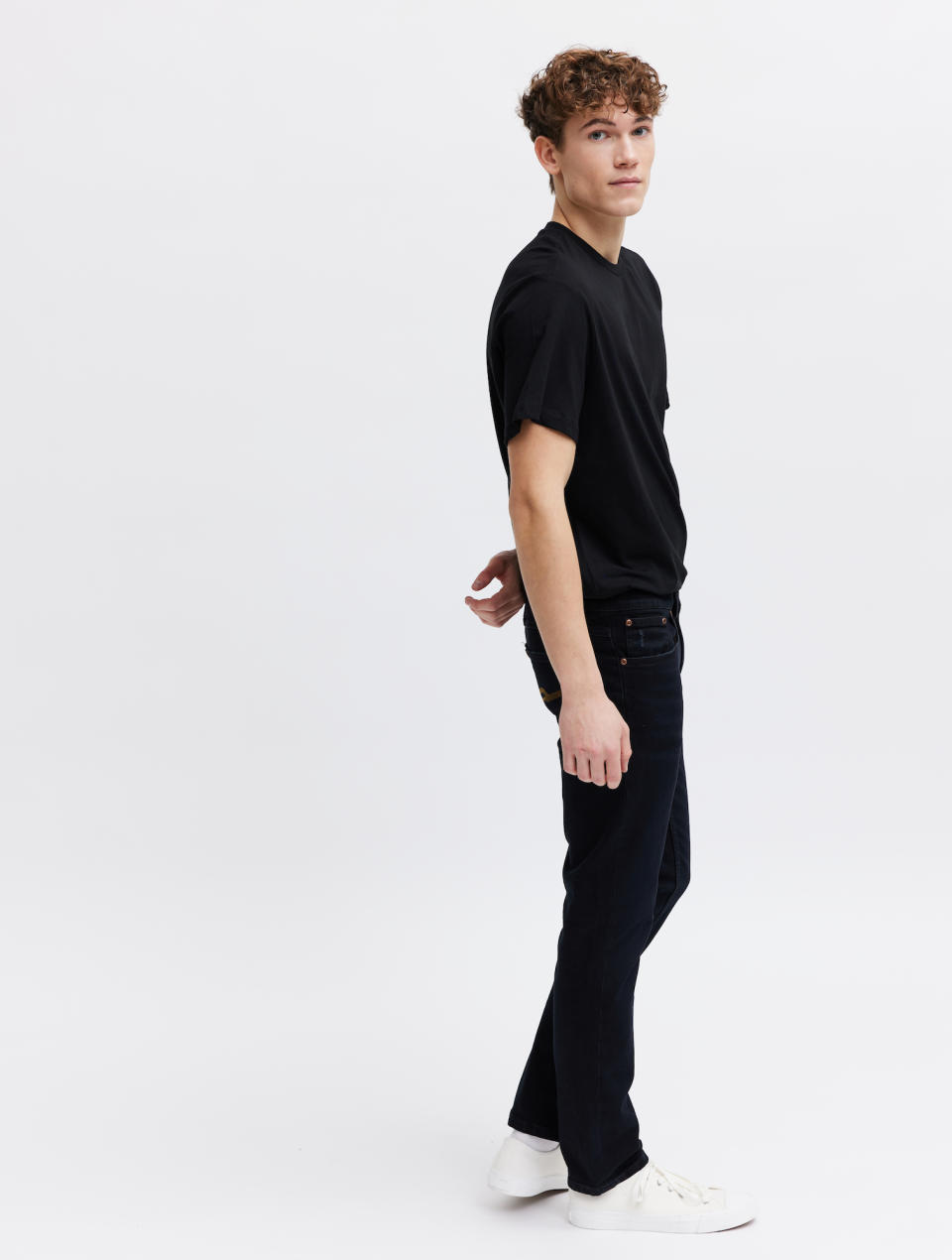Organsk Wants to Disrupt How Jeans Are Made and How People ‘Own’ Them

Click here to read the full article.
Designing good-looking jeans is just one part of what it means to be a denim brand today, and that’s exactly how Scandinavian startup Organsk wants it.
Named after Danish slang for “organic,” the Copenhagen label launched last year to disrupt conventional ways of making and owning denim with its circular jeans, subscription programs and take-back scheme.
The brand offers men’s and women’s jeans made with recycled cotton and organic cotton. It bypasses traditional seasonal collections by focusing on core fits and growing the line with new washes. After launching in Denmark and across Europe, it is now working on breaking into the U.S. market with its circular ethos and mission to get people to keep their jeans around longer than they usually do.
Organsk is the product of four partners with different backgrounds and a shared passion for denim. “It’s a cliché, but we love denim,” said Alen Hrustic, Organsk CEO and designer.

Conversations in 2019 about what was missing in the Scandinavian denim market led to research in textiles, sustainable technologies, and certifications. By 2020, they were visiting factories and suppliers. Last year, they put the finishing touches on a collection of 22 styles of Nordic Swan Ecolabel-certified, GOTS-certified and PETA-approved vegan jeans. Four additional styles are certified by GOTS.
“It took three years for us to make our collection because we had a very strong idea how to make it,” Hrustic said.
As the “best known certifications in Europe,” the Nordic Swan Ecolabel and GOTS approvals were Organsk’s biggest priority, Hrustic said. Getting there meant Organsk had precious few raw materials suppliers and producers to work with, primarily in Turkey.

Nordic Swan Ecolabel fabrics are sourced from Isko, which was awarded the distinction in 2016. Calik supplies the remaining GOTS-certified fabrics. Cutting, sewing and finishing are provided by Sarp and jeans are washed by Egemen. AFA supplies brass buttons and rivets. Vegan patches come from KT Trims.
Outside of Turkey, U.K.-based Coats provides Organsk with Epic EvoVerde 100 percent recycled polyester core spun sewing thread, while YKK supplies Natulon zippers made from recycled PET bottles.
The “short supply chain,” Hrustic said, helps ensure trust and transparency.
“Our definition of sustainability is a circular economy,” he said. “We wanted to make our denim as sustainable as possible and take a step further and offer our jeans with an active takeback scheme so we can take them back, redo them and resell them.”
Trial subscription
The industry’s efforts to educate consumers on sustainable fashion are paying off. They’ve opened the door for new brands like Organsk to launch with sustainability as its foundation. Leasing or renting clothing still has a ways to go, however.
Mud Jeans disrupted the traditional model for selling jeans when its leasing program launched in 2013 and now has “a few thousand leasers.” Rental platforms from Nuuly to Rent the Runway offer jeans in their assortments.
Organsk prefers to call its sharing model “subscriptions.”
“In Denmark and Scandinavia, we love subscriptions,” said Hrustic, adding that there’s a “subscription basically for everything” from Netflix to cars. “When it comes to clothes, you have portals for designer clothes and dresses, but no one is actively offering leasing for regular clothes.”
That gap exists because brands often don’t have the infrastructure to set up a consumer-friendly leasing process, he added. Plus, product quality is paramount if garments must survive myriad washings and wearings, which isn’t the norm given how cheaply made fast fashion has cornered the market, Hrustic said.

Organsk has both baked into its business model, including software developed to make subscriptions possible.
The brand is working on offering three membership tiers in Europe. The free Organsk Smile level gives consumers access to a no-charge return label so their jeans can be recycled when they’re done with them. For 170 Danish krone ($25) a month, Organsk Life allows consumers to select any style of jean and swap them for a new pair every six months. Organsk Share, which is “coming soon,” will offer free monthly swaps of re-used jeans for 350 Danish krone ($51) per month.
The company repairs and cleans returned jeans before cycling them back into the market or upcycles the fabric into denim accessories.
Introducing non-denim product has never been part of the plan, but Hrustic said consumers have expressed interest in items that go well with jeans, like T-shirts and pullovers. “There’s definitely an opportunity for that but not immediately,” he said.
Rather, the company is focused on making it name in the U.S. market. Jeans are available to purchase for $175-$225 on Organsk’s website. Bestselling styles include the women’s skinny Breeze, straight Aqua and wide leg Wave, and the men’s slim-fit tapered called O2.
On April 14, the company will introduce a subscription model in the U.S., allowing consumers to lease jeans for $25 per month. They will be able to swap for new ones in six months.
“I think it will take a little time for customers to get used to it,” Hrustic said. “But we are moving toward a sharing economy. That was always the base idea for us—a circular concept.”

